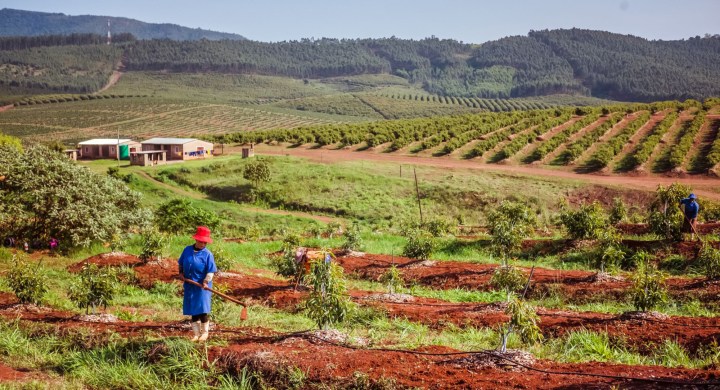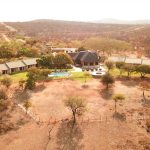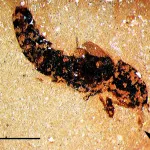BIODIVERSITY UNDER THREAT
Limpopo’s Greater Letaba water catchment area threatened by agricultural activity

Increased and more industrialised agricultural activity, that has transitioned from low-irrigation crops to water-intense ones, is a concern to residents and threatens biodiversity in the area, as farming practices encroach on pristine nature in the Limpopo area.
The Great Letaba Water Catchment in Magoebaskloof, which provides water to areas in Limpopo and Polokwane as well as feeding the Kruger National Park all the way up to the Olifants River near the Mozambique border, is being threatened by increased agricultural activity in the area, eroding water and biodiversity.
Located in Limpopo, the water catchment – biodiverse land surrounding water bodies – consists of about 20 dams which are the main source of irrigation for the agricultural sector in the region, as well as a source of domestic water among other uses. However, the intensive farming has resulted in the overexploitation of the region, lowering water quality and deteriorating the surrounding biodiversity.
Dr Bronwyn Egan of the University of Limpopo’s biodiversity department told Daily Maverick the area used to farm pine and gum, which required minimal irrigation. She added that the pine and gum plantations, which took up most of the grassland and some forest space, have since made way for more intensive agriculture such as avocado, blueberry and kiwi orchards.
“We need this livelihood (agriculture) as it’s really vital… it’s food and a basic need. But if we’re not going to do this carefully, we’re going to lose our water supply and the quality of water. The things that are worrying are the need to use fertiliser and chemicals and the silt load that’s going into the river,” said Egan.
The Woodbush Granite Grassland in the region is critically endangered, as less than 1% of its original state remains with several plants, such as the red hot poker, and the blue swallow having gone extinct locally, said Dr Egan.
Such biodiversity around the catchment plays an important role in soil retention, water purification in the catchment and carbon sinks in the ecosystem. Indigenous vegetation for the region is also vital in light of a changing climate due to its robust and resilient nature as compared to monoculture crops.
Limpopo’s main economic streams are agriculture and tourism which are vital for our livelihoods, but they can also end up disrupting this environment.
Megan Baragwanath, chairperson of the civic organisation Mountain Environmental Watch (MEW) told Daily Maverick that the mechanisation and industrialisation of agriculture in and around the Letaba catchment area resulted in the unlawful use of the water from the catchment.
“The system has almost collapsed; it’s very difficult and expensive to go through the process of obtaining a water use licence. There are problems within the whole process which doesn’t help the system or anybody. Because it’s a system failure, an abuse of the system started taking place, which was worrying for us,” Baragwanath said, adding that the issue came to her organisation’s attention during a seven-year drought.
The chairperson added that beyond unlawful water use, river buffer zones and protected grasslands were being ploughed, with indigenous forests being mowed down to make room for new crops.
Visit Daily Maverick’s home page for more news, analysis and investigations.
Baragwanath added that engagement with the Departments of Water and Sanitation, and Forestry, Fisheries and the Environment as well as at a provincial level yielded no fruit in addressing the agricultural practices that were degrading the biodiversity.
MEW started having conversations with the farmers and engaging all stakeholders about the harm that their agricultural practices cause to the catchment and biodiversity, with the involvement of the community. The organisation is also looking at how farmers can conserve and/or restore identified land, increase biodiversity and create corridors that link the identified pieces of land around the catchment.
Magoebaskloof ecotourism operator Lisa Martus said the increased agriculture, which also has an effect on the water pollution and thus quality of the catchment, was detrimental to tourism not only in the area but globally.
“I think though that these problems (increased agricultural activity, water pollution) translate specifically to Magoebaskloof as what has always been considered a pristine nature environment – and that is the appeal to tourists; that we have crystal-clear waters, beautiful streams running through mountains trickling through indigenous forests, rock pools,” Martus told Daily Maverick.
With agricultural activity moving closer to the rivers causing issues with water supply, the reality of healthy crystal-clear waters is being jeopardised, and the need to protect the catchment area becomes ever more important, Martus said.
Nicholas Theron, senior programme manager of the Kruger to Canyons biosphere organisation told Daily Maverick that the work they do aims to promote a sustainable relationship between nature, its resources and development.
“We implement a number of different projects, but catchment areas are a priority. The reasons are obvious; they are generally important for biodiversity and for people as they can extract natural resources out of those areas… for carbon sinks… and water,” Theron said.
Those extracting from the catchment areas include about 2,500 zama zamas (informal miners) who dig for gold in the region and leave ecological footprints and further degrade the catchment area.
Said Theron: “[We need to] do something now to protect [these catchment areas]; the impacts are irreversible and frightening. There really needs to be some focus as to what’s going on.” DM/OBP



















 Become an Insider
Become an Insider
There is little sense in controlling water use, if you do not secure the source of the water. Catchment Management is based on exacting science and to be effective you need to plan and carry out major manage to interventions such as fire control, alien plant controls, soil conservation and a host of land management activities that can allow hydrological systems to function sustainably.
Sadly, most water catchment areas in the country today are t do itnot managed. Not effectively anyway. Which is crazy really as catchment management really provides an endless stream of diverse work opportunities. This government should understand that you don’t have to create jobs, theres plenty work out there already – just do it (without stealing the money preferably)